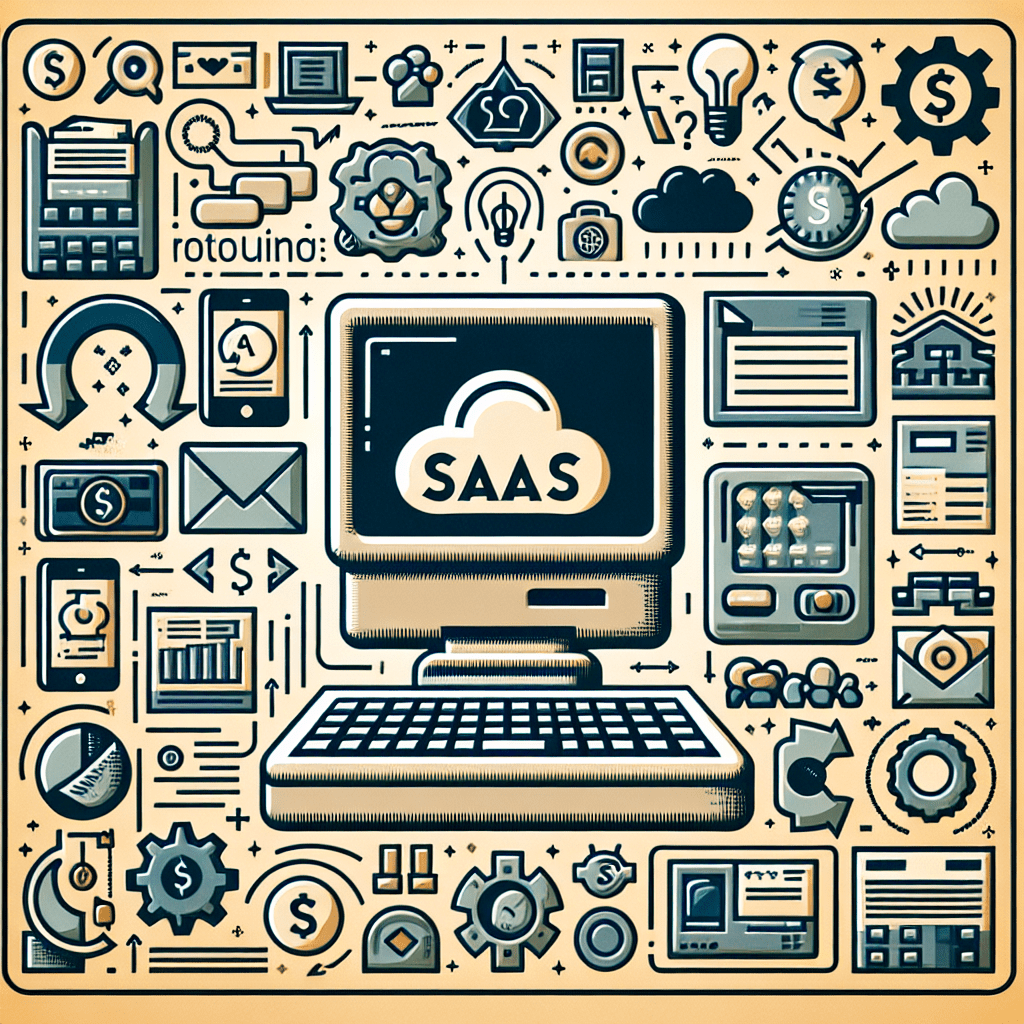Revolutionizing the Software Industry: The Top SaaS Subscription Services of the 90s
In today’s fast-paced world, it’s hard to imagine a time when software was not easily accessible through the internet. However, in the 1990s, Software as a Service (SaaS) subscription services emerged, revolutionizing the way businesses and individuals accessed and used software. These services allowed users to access software through a subscription model, eliminating the need for expensive upfront costs and providing regular updates and support. Let’s take a look at the top 6 SaaS subscription services from the 90s and their impact on the technology industry.
1. Salesforce (NYSE: CRM)
Founded in 1999, Salesforce is one of the pioneers of SaaS subscription services. The company’s CEO, Marc Benioff, envisioned a world where software could be accessed through the internet, and Salesforce made that a reality. With its cloud-based customer relationship management software, Salesforce quickly gained popularity and became one of the top SaaS companies in the world. Its success also paved the way for other SaaS companies to follow suit, making it a trailblazer in the industry. Today, Salesforce’s stock is traded on the New York Stock Exchange under the ticker symbol CRM, and the company has a market cap of over $200 billion.
2. NetSuite (NYSE: N)
Founded in 1998, NetSuite was one of the first companies to offer SaaS-based Enterprise Resource Planning (ERP) software. The founders, Evan Goldberg and Larry Ellison, saw the potential of cloud-based software and created NetSuite to provide a more affordable and accessible option for businesses. NetSuite’s ERP software allowed companies to manage their finances, inventory, and operations all in one place, making it a game-changer for small and medium-sized businesses. In 2016, NetSuite was acquired by Oracle Corporation and is now a subsidiary of the company. Its stock is traded on the New York Stock Exchange under the ticker symbol N.
3. Oracle (NYSE: ORCL)
Founded in 1977, Oracle is one of the oldest and largest software companies in the world. In the 90s, the company recognized the potential of SaaS and started offering cloud-based versions of its popular database management software. This move allowed Oracle to expand its customer base and remain competitive in the ever-evolving technology industry. Today, Oracle offers a wide range of SaaS subscription services, including ERP, Human Capital Management (HCM), and Customer Experience (CX) solutions. Its stock is traded on the New York Stock Exchange under the ticker symbol ORCL, and the company has a market cap of over $200 billion.
4. Intuit (NASDAQ: INTU)
Founded in 1983, Intuit is best known for its financial management software, QuickBooks. In 1998, the company launched QuickBooks Online, a cloud-based version of its popular software. This move allowed Intuit to tap into the growing market of small businesses and freelancers who were looking for more affordable and accessible accounting solutions. QuickBooks Online quickly gained popularity and became one of the top SaaS subscription services in the 90s. Today, Intuit offers a suite of SaaS products, including QuickBooks, TurboTax, and Mint. Its stock is traded on the NASDAQ under the ticker symbol INTU, and the company has a market cap of over $160 billion.
5. Adobe (NASDAQ: ADBE)
Founded in 1982, Adobe is a leading software company known for its popular creative tools like Photoshop, Illustrator, and InDesign. In 1999, the company launched its first SaaS subscription service, Adobe Creative Cloud. This move allowed users to access Adobe’s software through a subscription model, eliminating the need for expensive upfront costs. The success of Adobe Creative Cloud prompted the company to transition all of its software to a subscription-based model, leading to a significant increase in revenue. Today, Adobe’s stock is traded on the NASDAQ under the ticker symbol ADBE, and the company has a market cap of over $260 billion.
6. Microsoft (NASDAQ: MSFT)
Founded in 1975, Microsoft is one of the largest and most well-known technology companies in the world. In the 90s, the company recognized the potential of SaaS and started offering cloud-based versions of its popular software, including Microsoft Office. This move allowed Microsoft to stay ahead of its competitors and remain a leader in the software industry. Today, Microsoft offers a wide range of SaaS products, including Office 365, Dynamics 365, and Azure. Its stock is traded on the NASDAQ under the ticker symbol MSFT, and the company has a market cap of over $2 trillion.
In conclusion, the 90s was a crucial decade for SaaS subscription services, with companies like Salesforce, NetSuite, and Adobe paving the way for the industry’s growth. These companies not only changed the way software was accessed and used but also had a significant impact on the technology industry as a whole. Today, SaaS subscription services continue to dominate the software market, and with the rise of remote work and digital transformation, their importance is only going to increase.


